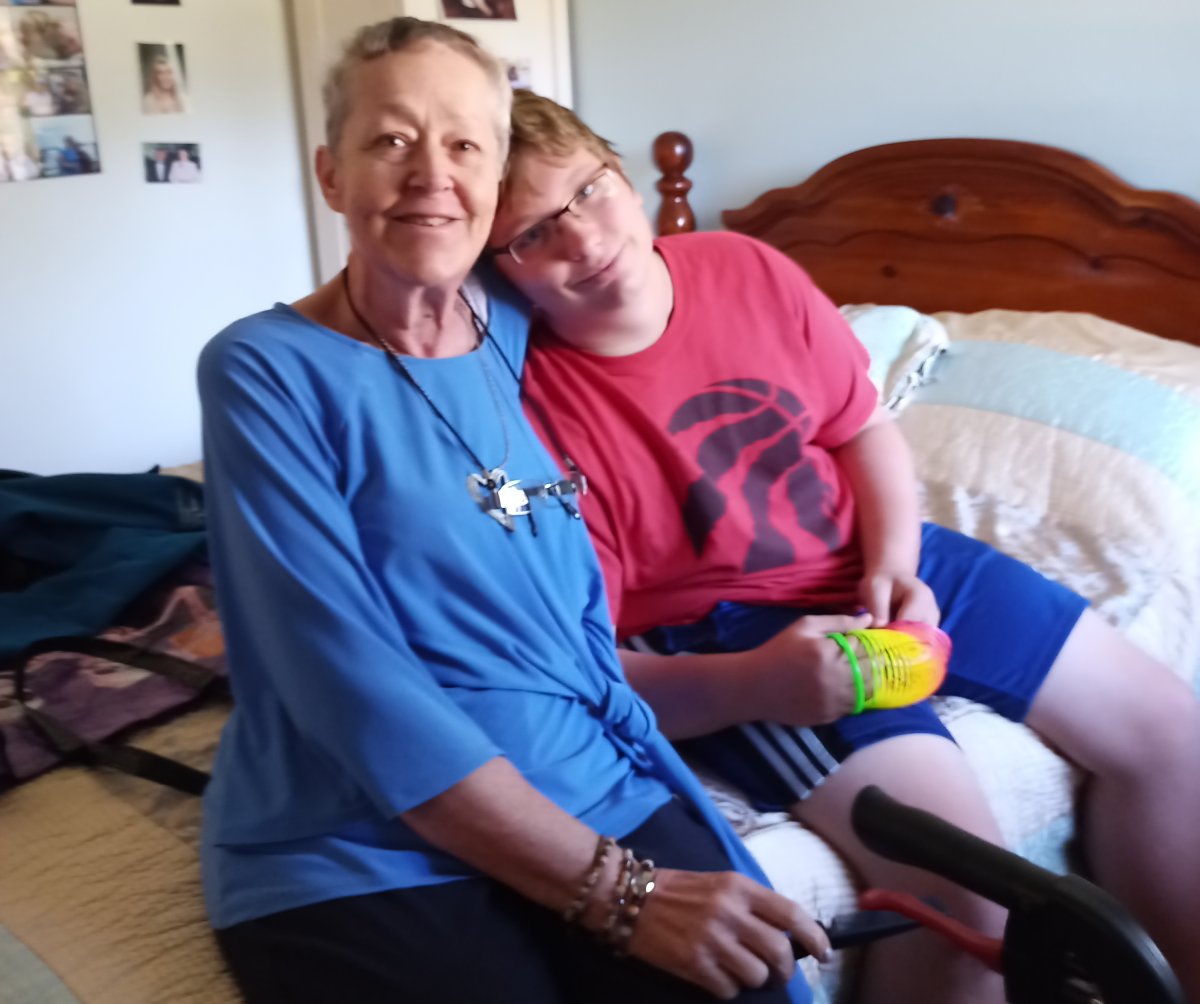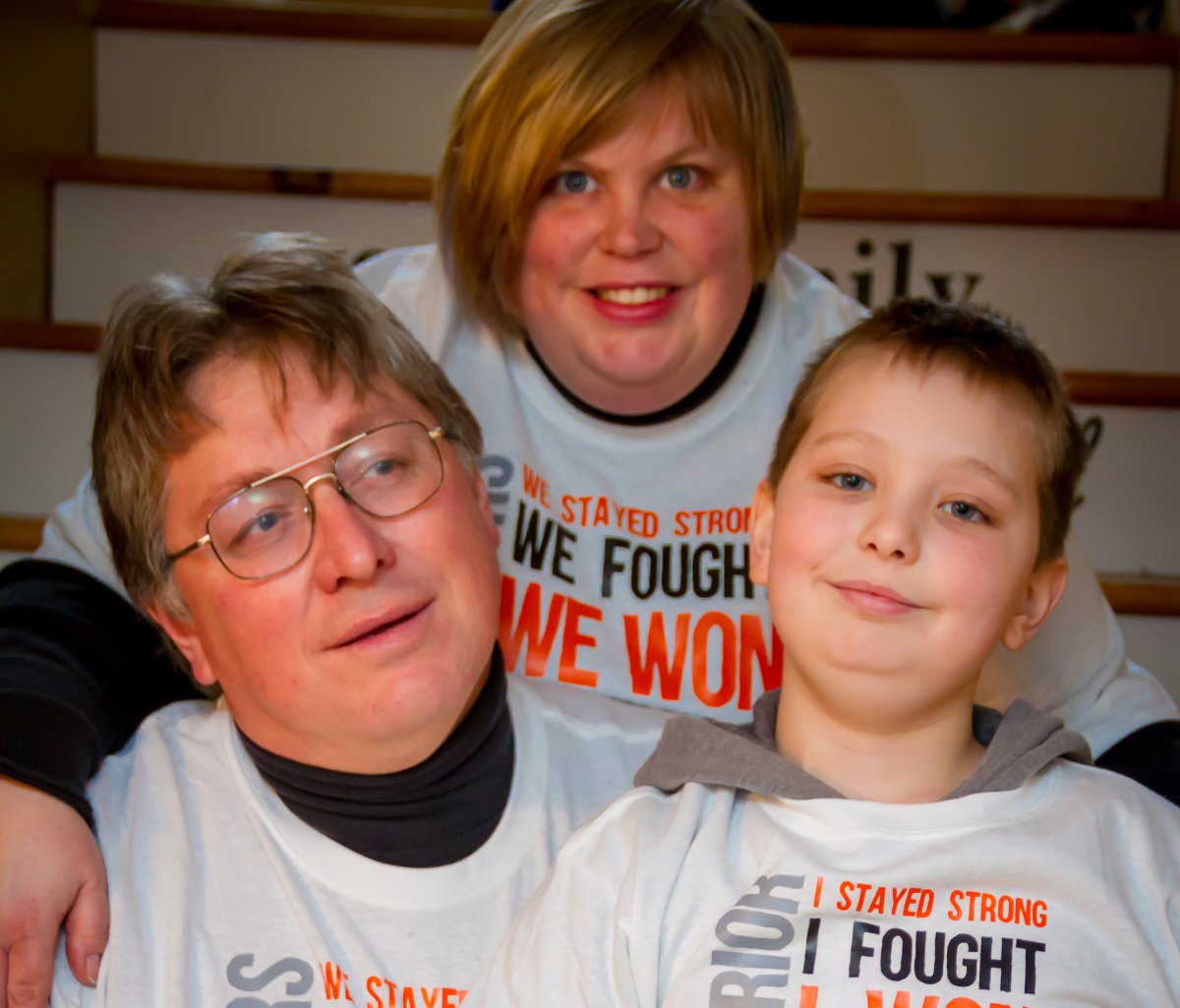Lesley McGill says being the main caregiver to her son and to her mother was a massive task, made harder by struggles to find financial aid and moments to rest.

“You put off all your needs until later … there was no reprieve,” said the 47-year-old resident of Lawrencetown, N.S., a participant in a study that aims to describe the unmet needs of thousands of volunteer caregivers in Nova Scotia.
Between 2013 and 2017, McGill supported her son while he underwent leukemia treatments and also cared for her mother, who started to develop Alzheimer’s disease during that period. She says governments, hospitals and the public need to hear stories like hers.
The research is being carried out by the centre on aging at Mount Saint Vincent University and by Caregivers Nova Scotia. Findings will be sent to the provincial Department of Seniors and Long-Term Care, which is funding the $250,000 project.
Janice Keefe, director of the centre on aging, cites Statistics Canada data estimating that about 28 per cent of Nova Scotians 15 years old and older provide some unpaid care — totalling about 221 million hours of care every year.
The research project involves focus groups with up to 15 people per group, she said in an interview Tuesday. The project, she added, also involves a survey, which caregivers can complete online.
“We’re trying to understand what would help (caregivers), both in terms of their own well-being and how to support them,” Keefe said. “It might be the workplace lacks supportive policies, or the financial burden of care is stopping them from being able to continue.”
Keefe said Canadian society is aging and options are needed to keep elders and those living with disabilities from being moved to overburdened long-term care facilities.
Though McGill’s son William’s cancer is now in remission, and her mother recently moved into long-term care, her memories of the pressures of caregiving for two people remain fresh. One of her messages to the researchers is how frustrating it can be for caregivers to navigate various financial support programs on their own.
For example, she recalled asking for help from a social worker to gather information on employment insurance benefits and the disability tax credit. At the time, she had stopped working in order to care for her loved ones.
“She (the social worker) said, ‘No, no, you don’t need this, you don’t qualify’ … It was difficult to tease out that information because I didn’t have time to be surfing the internet to decipher all of this on my own,” McGill said.
When McGill did manage to access tax benefits and aid programs, it gave her hundreds of dollars more every month to help pay for incidental expenses ranging from diapers to parking.
Gaining tax benefits for her ailing mother was also a daunting task. “It was insanely complicated,” she said, to retroactively seek tax benefits after her mother received an official diagnosis of Alzheimer’s disease.
As well, McGill said, patients such as her mother should receive help booking medical appointments. Consultations and tests should be arranged for a single day, she added, rather than over a period of days, which requires multiple trips to hospital.
Keefe said if hospitals, long-term care facilities and society at large fail to support caregivers, then those people will burn out.
- Life in the forest: How Stanley Park’s longest resident survived a changing landscape
- ‘Love at first sight’: Snow leopard at Toronto Zoo pregnant for 1st time
- Carbon rebate labelling in bank deposits fuelling confusion, minister says
- Buzz kill? Gen Z less interested in coffee than older Canadians, survey shows
“If we don’t support the caregivers, then they will become another client of the system.”
A ‘vicious hamster wheel’
The supply of volunteer caregivers appears to be on the decline, Keefe said, making it all the more important to know what their needs are. Members of the baby boomer generation — currently engaged in caring for elders — often have more siblings than younger generations do.
“The availability of adult children (as caregivers) is falling,” Keefe said.
Meanwhile, the researcher said nursing homes are increasingly relying on volunteer caregivers — either friends or family — to provide much of the day-to-day companionship and to perform many of the daily tasks vital to an elder’s well-being.
Keefe pointed to evidence from the COVID-19 pandemic, when nursing homes were locked down for extended periods, which showed that without family and friend caregivers, the physical health of residents often declined dramatically.
McGill says caregivers regularly live in fear of getting sick themselves and limit their own life to ensure they’re strong enough to continue in their unpaid roles.
“Even when they (her son and mother) went to bed, I would be busy planning and thinking: What will tomorrow bring? What do I need to pack? What are the meals and things I can put in place now?
“It was a vicious hamster wheel which, once you’re on trying to micromanage everything, it’s hard to get off,” she said.
The results of the study are expected in the fall of 2023.
This report by The Canadian Press was first published Nov. 2, 2022.





Comments